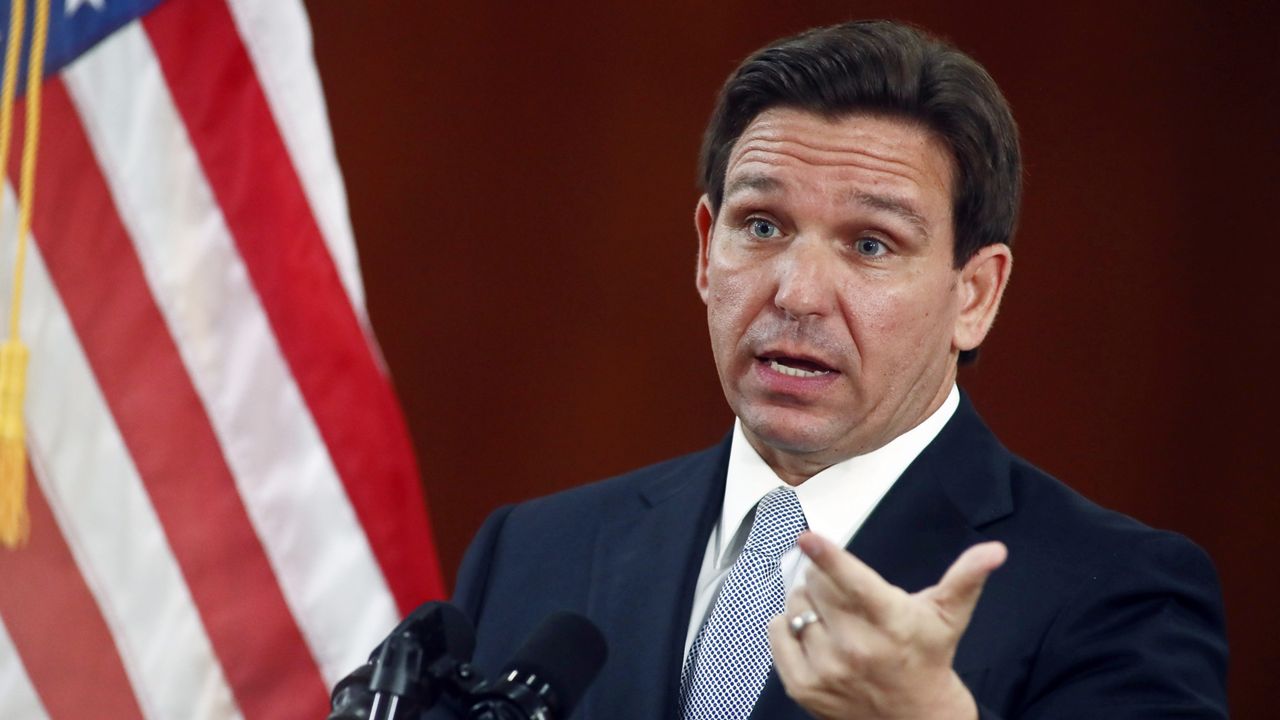FLORIDA — Florida Gov. Ron DeSantis signed the "Live Local Act" into law early Wednesday in a move aimed at increasing access to affordable housing.
What You Need To Know
- DeSantis signed the "Live Local Act" into law on Wednesday
- The new law provides incentives for developers and communities to make housing avialable
- It also removes any option for local governments to pass rent control provisions
- RELATED: Live Local Act aims to address Florida's affordable housing crisis, ban rent control
The bill, also known as SB 102, has several provisions that will create incentives for developers to make more accessible housing available across the state. The act will be governed through the Florida Housing and Finance Corporation, and marks the largest investment into affordable housing in state history, according to the govenor's office.
Some of the major provisions in the law will commit $259 million for the SAIL program that provides low interest loans for developers. The majority of those funds will be earmarked for projects new military installations and other specified uses. Another $252 million is slated for the SHIP program, to create incentives for local governments to create partnerships to make more housing accessible in their communities.
Additionally, $100 million will go towards bolstering the "Hometown Heroes" program, and makes it easier for emergency personell, teachers, and others under the program to buy a home for the first time if they qualify.
Before the bill was signed, the program allowed those that qualified to obtain a zero percent interest loan to help pay for closing costs or the required down payment up to $25,000. Now that the Live Local act is signed, that amount increases to up to $35,000.
More money is also geared towards lowering inflation-related cost increases for housing projects approved by the FHFC.
"This legislation provides record support for Florida’s workforce and their families to help them live where they work, while also providing historic support for our military communities and the families living near military bases," DeSantis said at the bill signing ceremony. "I applaud Senator Passidomo for leading on this legislation and look forward to the support it will provide to Florida families."
Gov. DeSantis Signs Historic Housing Legislation https://t.co/3zG1nKHQ6p
— Ron DeSantis (@GovRonDeSantis) March 29, 2023
Republican Senate President Kathleen Passidomo was instrumental in shepherding the bill through Tallahassee, and expressed her support for the bill as well.
"When I moved here to Naples almost 43 years ago, the community was talking about the lack of housing for our workers," Passidomo said in a statement. "It was a problem then and remains a persistent problem in many areas of our state – that changes today! The Governor and Speaker are amazing partners in this effort. Together, we are shutting down affordable housing stereotypes and creating attainable housing options needed by the majority of our workforce, the backbone of Florida’s economy."
The latest bill analysis produced by the Committee on Appropriations indicated that local governments could incur a cost as a result of the new law.
"Local governments may incur expenditures and lost revenues in implementing the bill with regards to updating inventory lists of publicly owned land, publishing certain procedures and regulations electronically, and administering new ad valorem tax exemptions," the analysis asserted.
Perhaps of interest to those considering rent control efforts, the staff say that the law will "remove provision in current law allowing local governments to impose rent control under certain circumstances, preempting rent control ordinances entirely," according to the report.
Before the law was signed, counties and other municipalities were permitted to pass some rent control ordinances under certain strict guidelines. Those provisions are now removed.
As for additional costs, the Revenue Estimating Conference estimates that the law will reduce general revenue to the state by $31.9 million during the 2023-2024 fiscal year, and local governments could see a hit totallying $8.9 million based on tax provisions in the bill.
A bigger cost associated with the Live Local program will be a decrease of $50 million in taxes for the first fiscal year, followed by a $100 million deficit every following year.
On the plus side, the committee staff predict that developers of multifamily housing will see an increase in property available for development for housing projects that fit the parameters of the law.
The law was passed in the Senate as written on March 8, and was passed on the House floor on March 24. It was sent to the governor's office yesterday.



